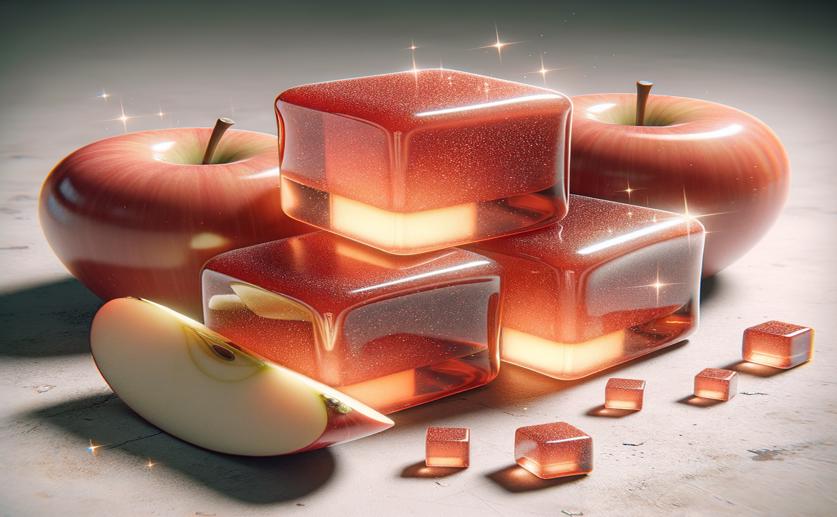
Apple Cubes with Probiotic Coating: Enhancing Health Benefits and Quality
Jenn Hoskins
15th August, 2024

Image Source: Natural Science News, 2024
Key Findings
- Researchers at Universidad Nacional de Mar del Plata found that fresh-cut apple cubes can effectively deliver probiotics using alginate-based coatings enriched with inulin and oligofructose
- After 8 days of refrigerated storage, the apple cubes maintained high levels of the probiotic Lacticaseibacillus casei, even after simulated gastrointestinal digestion
- The probiotic-coated apple cubes significantly reduced harmful bacteria like Listeria innocua and E. coli O157:H7, enhancing food safety
References
Main Study
1) Alginate coatings applied on apple cubes as a vehicle for Lacticaseibacillus casei: probiotic viability and overall quality of a new functional product.
Published 13th August, 2024
https://doi.org/10.1002/jsfa.13805
Related Studies
2) Viability of Lactobacillus plantarum on Fresh-Cut Chitosan and Alginate-Coated Apple and Melon Pieces.
3) Incorporation of Lactococcus lactis and Chia Mucilage for Improving the Physical and Biological Properties of Gelatin-Based Coating: Application for Strawberry Preservation.



 8th April, 2024 | Greg Howard
8th April, 2024 | Greg Howard